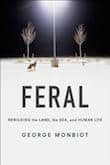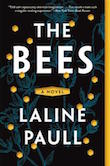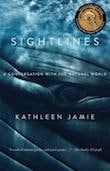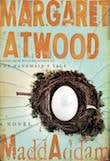2015
Winners
Nonfiction
Feral: Rewilding the Land, the Sea, and Human Life, by George Monbiot (University of Chicago Press)

“George Monbiot’s well-researched book of narrative storytelling, speculation, and bold imagination is a vote in favor of rewilding not just nature but the human spirit. Feral invites readers to envision a wilder, less stifled and more primal world—one in which we humans can come to recognize our animal selves once again.” —The Editors
Finalists:
Country Called Childhood, by Jay Griffiths (Counterpoint)
The Sixth Extinction, by Elizabeth Kolbert (Henry Holt and Company)
Windfall, by McKenzie Funk (The Penguin Press)
Zoologies, by Alison Hawthorne Deming (Milkweed Editions)
Fiction
The Bees, by Laline Paull (Ecco Press)

“Surprising, imaginative, and riveting, Laline Paull’s The Bees will leave you in awe of bees and their intricate society. Written from the perspective of a lowly worker bee, Paull’s ambitious novel takes us deep into the hive. With suspense and a dystopic twist, this gripping story shows you bees and their struggles in a way you’ve never seen before. The Bees will leave you as obsessed with these miraculous (and threatened) creatures as the author, trailing after them in your yard, daydreaming about their buzzing lives carrying on outside our doors.” —The Editors
Finalists:
Divine Animal, by Scott Russell Sanders (Earth Works Publishing)
Invisible Beasts, by Sharona Muir (Bellevue Literary Press)
The Land of Love and Drowning, by Tiphanie Yanique (Riverhead Books)
Long Man, by Amy Greene (Alfred A. Knopf)
Selection Committee
The Orion staff.
2014
Winners
Nonfiction
Sightlines: A Conversation with the Natural World, by Kathleen Jamie (The Experiment)

“Kathleen Jamie’s Sightlines, which is one of the most elegant and awake essay collections we’ve seen all year. From a meditation beneath the aurora borealis to a tour of the landscape of the human cell, Jamie’s ability to see and discover linked meanings and resonances in the natural world is unmatched.”—The Editors
Finalists
Braiding Sweetgrass: Indigenous Wisdom, Scientific Knowledge and the Teachings of Plants, by Robin Wall Kimmerer (Milkweed Editions)
Countdown: Our Last, Best Hope for a Future on Earth?, by Alan Weisman (Little, Brown, and Company)
The Urban Bestiary: Encountering the Everyday Wild, by Lyanda Lynn Haupt (Little, Brown, and Company)
Fiction
Maddaddam, by Margaret Atwood (Nan A. Talese)

“Classic Margaret Atwood. At once imaginative and insightful, MaddAddam offers adventure and humor as well as a picture of what resilience might look like in a ruined world.”—The Editors
Finalists
All the Land to Hold Us, by Rick Bass (Houghton Mifflin Harcourt)
Archipelago, by Monique Roffey (Penguin Books)
The Last Animal, by Abby Geni (Counterpoint)
Selection Committee
The Orion staff.
2013
Winner

Apocalyptic Planet: Field Guide to the Everending Earth, by Craig Childs (Pantheon)
“Apocalyptic Planet puts an entirely new spin on our usual preoccupations with climate change and catastrophe in general. This is a work deeply worthy of the Orion Book Award.” —The Editors
Finalists
Flight Behavior: A Novel, by Barbara Kingsolver (Harper)
Things That Are: Essays, by Amy Leach (Milkweed Editions)
The Old Ways: A Journey on Foot, by Robert Macfarlane (Viking)
The Mountain and the Fathers: Growing Up on the Big Dry, by Joe Wilkins (Counterpoint)
Selection Committee
Ursula Kroeber Le Guin (poet and author, most recently, of The Unreal and the Real: Selected Stories), Jessa Crispin (editor of Bookslut.com), Erik Reece (author, most recently, of The Embattled Wilderness), Hannah Fries (Orion associate editor), Luis Alberto Urrea (author, most recently, of Into the Beautiful North).
2012
Winner

The View from Lazy Point, by Carl Safina (Picador)
The View from Lazy Point is a record, of sorts, of a year spent in intense participation with what Safina comes to call the real “real” world—the one that darts, breathes, and wheels above and around us, while we’re busy finding a parking spot. An excellent naturalist and tireless observer, Safina tells of worlds within worlds—the migratory history of a warbler on a backyard branch; a beach, lit by the moon, crawling with horseshoe crabs—all within a six-something-mile radius of home.
Finalists
Fire Season, by Phillip Connors (Ecco)
Oil on Water, by Helon Habila (W. W. Norton & Co.)
Swamplandia!, by Karen Russell (Alfred A. Knopf)
Raising Elijah, by Sandra Steingraber (Da Capo Press)
Selection Committee
Steve Curwood (executive producer and host of Living on Earth), Elizabeth Kolbert (author and staff writer at The New Yorker), Rob Spillman (editor of Tin House), Cheryl Strayed (author, most recently, of Wild), and H. Emerson Blake (editor-in-chief of Orion).
2011
Winner

Insectopedia, by Hugh Raffles (Vintage)
Ginger Strand, Orion Book Award committee chair, wrote, “Looking at insects, Raffles is led to consider beauty, evolution, language, race, sexuality, environmental destruction, death, and, of course, life, in all its mind-blowing complexity. The encyclopedic form is both a tribute to the organizational impulse of natural history and a beautiful example of how the natural world transcends human categories. Skittering back and forth across the animal-human divide, this book is a study of insects that is really a study of us.”
Finalists
Becoming Animal: An Earthly Cosmology, by David Abram (Pantheon Books)
About a Mountain, by John D’Agata (W. W. Norton)
The Tiger: A True Story of Vengeance and Survival, by John Vaillant (Alfred A. Knopf)
Deep Blue Home: An Intimate Ecology of Our Wild Ocean, by Julia Whitty (Houghton Mifflin Harcourt)
Selection Committee
Robin Kimmerer (Distinguished Professor at the State University of New York College of Environmental Science and Forestry), Verlyn Klinkenborg (member of the editorial board of The New York Times), Richard Nash (independent publishing entrepreneur, presently launching Red Lemonade), Jennifer Sahn (Editor, Orion), and Ginger Strand (committee chair and the author of Inventing Niagara: Beauty, Power, and Lies, and Flight, a novel).
2010
Winner

Some of the Dead Are Still Breathing: Living in the Future, by Charles Bowden (Houghton Mifflin Harcourt).
“Bowden’s writing is not only stunning,” said Ted Genoways, editor of The Virginia Quarterly Review and member of the 2010 Orion Book Award selection committee, “but the risks that he is willing to take are sometimes breathtaking. It’s journalism of a really compelling kind.”
Finalists
The Wayfinders: Why Ancient Wisdom Matters in the Modern World, by Wade Davis (House of Anansi Press)
Rewilding the West: Restoration in a Prairie Landscape, by Richard Manning (University of California Press)
Reasons for and Advantages of Breathing: Stories, by Lydia Peelle (Harper Perennial)
The Barbaric Heart: Faith, Money, and the Crisis of Nature, Curtis White (PoliPointPress)
Selection Committee
Don Snow (author, currently working on book of personal essays titled The Cabin of No Fishing), Anthony Doerr (author of four books, most recently Memory Wall), Ted Genoways (editor of Virginia Quarterly Review), Karen Russell (author of St. Lucy’s Home for Girls Raised by Wolves), and Harlan Clifford (at that time, executive editor of Orion).
2009
Winner

Trespass: Living at the Edge of the Promised Land, by Amy Irvine (North Point Press).
“Amy Irvine composes a staggering litany of trespasses great and small in Utah’s red rock country,” says selection committee chairperson Donna Seaman of Trespass. “As she braids together threads of Mormon history, family stories, and tales about her work for the Southern Utah Wilderness Alliance in her elegiac memoir of dissent, Irvine unveils the interconnectivity of life; the fact that everything matters: every cow and every coyote, every blade of invasive cheat grass, every human being, every dam, every hole drilled into the desert, every betrayal. For Irvine–passionate, imaginative, furious and visionary–language is a ladder out of the silencing cave of despair.”
Finalists
The Wild Places, by Robert Macfarlane (Penguin Books)
The Bridge at the Edge of the World, by James Gustave Speth (Yale)
Inventing Niagara, by Ginger Strand (Simon & Schuster)
Finding Beauty in a Broken World, by Terry Tempest Williams (Pantheon Books)
Selection Committee
Roger D. Hodge (editor, Harper’s Magazine); Scott Russell Sanders (Staying Put, Writing from the Center); Donna Seaman (Booklist, Chicago Public Radio); Susan Straight (Highwire Moon, A Million Nightingales); and Orion Editor-in-Chief H. Emerson Blake.
2008
Winner

The Zookeeper’s Wife: A War Story, by Diane Ackerman (W. W. Norton)
“The Zookeeper’s Wife is a groundbreaking work of nonfiction,” said selection committee member Mark Kurlansky, “in which the human relationship to nature is explored in an absolutely original way through looking at the Holocaust.” Kathleen Dean Moore, the committee’s chairperson, said: “A few years ago, ‘nature’ writers were asking themselves: How can a book be at the same time a work of art, an act of conscientious objection to the destruction of the world, and an affirmation of hope and human decency? The Zookeeper’s Wife answers this question.”
Finalists
Strange as This Weather Has Been: A Novel, by Ann Pancake (Counterpoint)
The Wild Trees: A Story of Passion and Daring, by Richard Preston (Random House)
Sky Time in Gray’s River: Living for Keeps in a Forgotten Place, by Robert Michael Pyle (Houghton Mifflin)
The World Without Us, by Alan Weisman (St. Martin’s Press/Thomas Dunne Books)
Selection committee
Linda Hogan (Dwellings; Solar Storms); Mark Kurlansky (Cod; Salt); Kathleen Dean Moore (The Pine Island Paradox; Holdfast); David Rothenberg (Always the Mountains; Why Birds Sing); and Jennifer Sahn (editor of Orion)
2007
Winner

Wild: An Elemental Journey, by Jay Griffiths (Jeremy P. Tarcher/Penguin)
“In this stunningly rich work of literary nonfiction, Jay Griffiths traces her efforts to rediscover in the mind, in culture, and in the natural world the generative possibilities of the wild. The structure of Wild is brisk and innovative, the language often baroque and playful to the point of startling excess — in form as well as content, this is a celebration, exploration, and demonstration of wildness, broadly conceived. Brilliant, irrepressible, randy, and learned, this risk-taking book guides readers on a wild ride of the imagination. The world feels different — richer and stranger — after one reads these words.” – Scott Slovic, 2007 Selection Committee Chair
Finalists
The Lives of Rocks: Stories, by Rick Bass (Houghton Mifflin)
Inferno, by Charles Bowden, photographs by Michael P. Berman (University of Texas Press)
Returning to Earth, by Jim Harrison (Grove Press)
The Omnivore’s Dilemma: A Natural History of Four Meals, by Michael Pollan (The Penguin Press).
Selection committee
Alison Hawthorne Deming (Science and Other Poems); David G. Campbell (The Crystal Desert); Pam Houston (Sighthound); Scott Slovic (founding president of the Association for the Study of Literature and Environment); and H. Emerson Blake (editor-in-chief of Orion).
The Orion Book Award is made possible through the generous support of Orion donors, the Geraldine R. Dodge Foundation, and Organic Valley.

